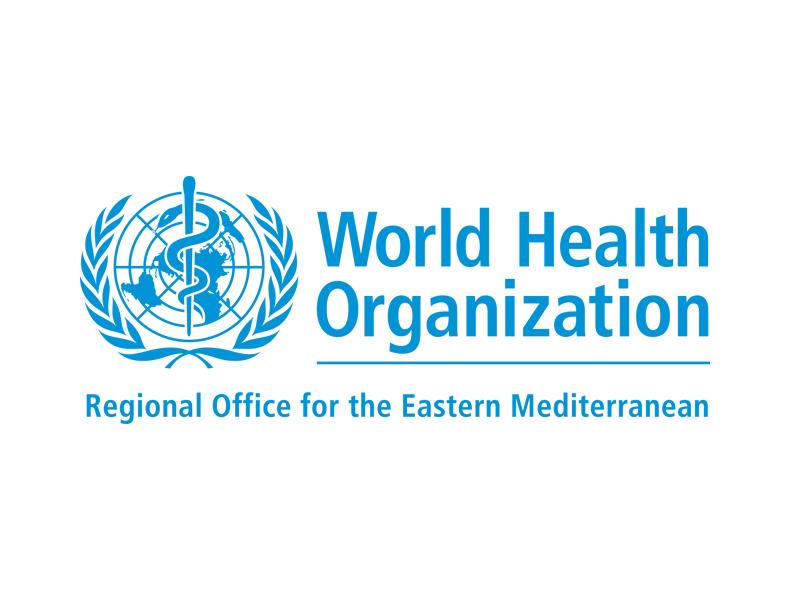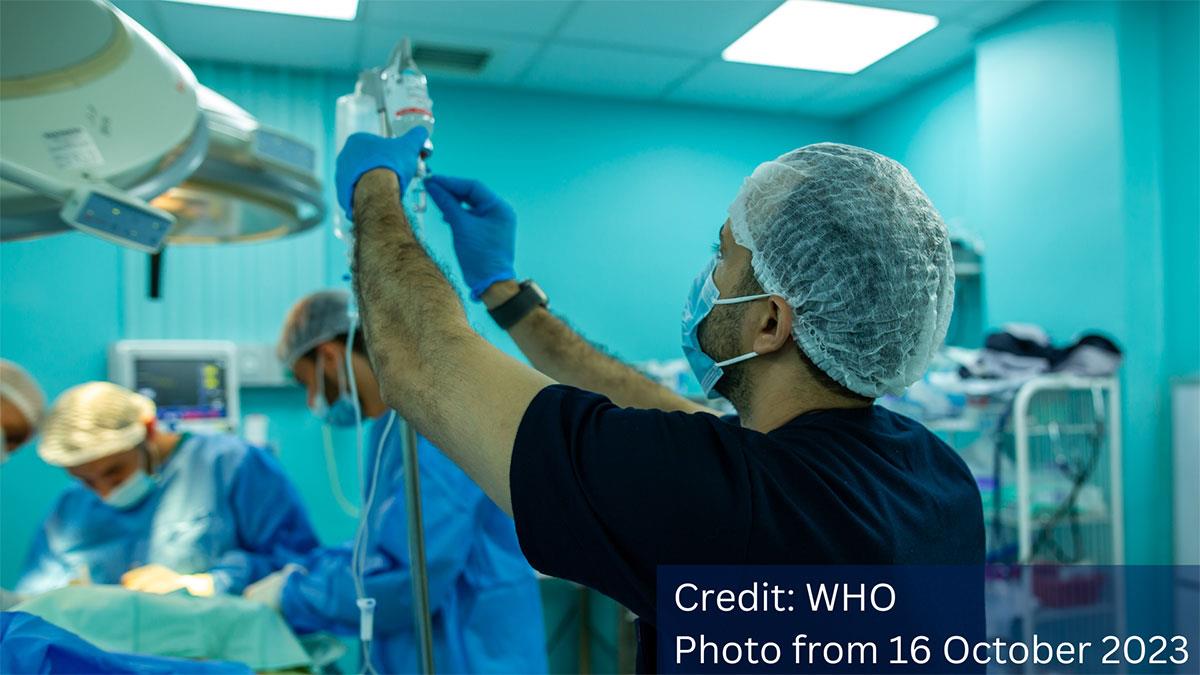
Cairo/Doha/Kabul/Kathmandu, 31 March 2022 – Delegates from the World Health Organization (WHO), UNICEF, the State of Qatar, Afghanistan, and other humanitarian partners met to discuss interim health priorities for Afghanistan over the next 18-24 months. During the 3-day high-level meeting, organized in Qatar from 29-31 March, health experts jointly reviewed the current situation and gaps in health service delivery and identified solutions to strengthen the overall service system. The delegates also discussed opportunities to improve health governance and coordination, and collaborations to meet existing and emerging humanitarian needs of children, women and other vulnerable groups.
“We are extremely concerned about the overlapping health threats facing Afghanistan: widespread malnutrition, a surge in measles cases, COVID-19, and the potential for a wave of acute watery diarrhea,” said Dr Ahmed Al-Mandhari, WHO Regional Director for the Eastern Mediterranean." Working together with our partners on the ground in Afghanistan and thanking the State of Qatar for always being a key partner and supporter of our response, WHO is committed to maintaining and scaling up our life-saving interventions for the people of Afghanistan.”
“Despite progress in the past several years, thousands of Afghan women die every year from pregnancy-related causes and far too many families in Afghanistan are unnecessarily losing their children to preventable causes. During my recent trip to Afghanistan, I saw hospitals overwhelmed with children suffering from treatable illnesses. Parents are exhausted, worried and unable to afford food or medicines,” said George Laryea-Adjei, Regional Director for UNICEF South Asia. “We need to prioritize strengthening health and nutrition services for mothers and children, particularly at community level. I am encouraged by the strong showing of support from our partners. However, there is much left to do to ensure all children in Afghanistan grow up healthy and well nourished.”
“The meeting built on the collaborative partnership the State of Qatar has with WHO, UNICEF and partners which hugely helped fulfil the needs of vital humanitarian programs, tackle COVID-19 and disease outbreaks, and provide critical support to vulnerable communities not just in Afghanistan but around the world;” said Dr Saleh Al-Marri, Assistant to Minister of Health, Qatar. “Since September 2021, the State of Qatar has been providing crucial support to the humanitarian response operations in Afghanistan, delivering life-saving essential medical supplies, including trauma and COVID-19 kits, serving the needs of millions. Ultimately, this timely response is aligned with our humanitarian vision to enhance existing efforts and contribute to universal health coverage (UHC) and addressing global health challenges.”
“Despite efforts of WHO, UNICEF and humanitarian partners delivering health services in Afghanistan, there are still about a thousand health facilities without any support and about 10 million Afghans living in areas without access to health services”, says Dr Luo Dapeng, WHO Representative in Afghanistan. “We need urgent support to continue to save lives -- every day of delay could mean a mother dying from childbirth, a child getting sick from preventable disease or a family losing a breadwinner from a treatable ailment.”
This year, nearly 25 million people require humanitarian assistance, with an estimated 18.1 million needing urgent health services. The country’s health system also functions only partially– putting at risk the very substantial health gains of the past 20 years.
Notes to Editors:
About WHO
The World Health Organization provides global leadership in public health within the United Nations system. WHO works with 194 Member States, across six regions and from 149 offices, to promote health, keep the world safe and serve the vulnerable. Our goal for 2019-2023 is to ensure that a billion more people have universal health coverage, to protect a billion more people from health emergencies, and provide a further billion people with better health and wellbeing.
In Afghanistan, WHO is playing a leading role coordinating health actors, including the Ministry of Public Health and over 50 organizations. We were the first humanitarian agency to deliver medicines and medical supplies in August 2021.
Visit http://www.emro.who.int/index.html and follow WHO on Twitter, Facebook, Instagram, LinkedIn, TikTok, Pinterest, Snapchat, YouTube For more information about WHO’s work in Afghanistan - click here.
About UNICEF
UNICEF works in some of the world’s toughest places, to reach the world’s most disadvantaged children. Across more than 190 countries and territories, we work for every child, everywhere, to build a better world for everyone.
In Afghanistan, UNICEF works to promote and protect the rights of children and women. With over 70 years of service, we are one of the longest-serving international organizations in the country. We continue to support the countrys transition from decades of war and natural disasters so that children, adolescents and women can access the services they need and fulfil their right to survival, development, protection and participation. Since the start of the humanitarian crisis in Afghanistan, UNICEF has been working around the clock with humanitarian partners to continue delivering lifesaving assistance to children and families. For more information about UNICEF’s work in Afghanistan - click here.
UNICEF’s Regional Office for South Asia (ROSA) works with UNICEF Country Offices in Afghanistan, Bangladesh, Bhutan, India, the Maldives, Nepal, Pakistan and Sri Lanka to help to save children’s lives, defend their rights, and help them fulfil their potential. For more information about UNICEF’s work for children in South Asia, visit www.unicef.org/rosa and follow UNICEF ROSA on Twitter and Facebook.
For more information, please contact:
WHO
• Joy Rivaca Caminade, Head of Communications, World Health Organization – Office of the WHO Representative in Afghanistan, Tel: +93782200354,
This e-mail address is being protected from spambots. You need JavaScript enabled to view it
• Muneera Al-Mahdli, Emergency Communications Officer, World Health Organization Regional Office for the Eastern Mediterranean, Cairo, Egypt, Tel: +20 127 599 3676,
This e-mail address is being protected from spambots. You need JavaScript enabled to view it
UNICEF
• Pravaran Mahat, Regional Communication Specialist, UNICEF Regional Office for South Asia, Tel: +977-98020 48256,
This e-mail address is being protected from spambots. You need JavaScript enabled to view it
• Salam Al-Janabi, Communication Specialist, UNICEF Afghanistan, Tel: +93 799 98 7111,
This e-mail address is being protected from spambots. You need JavaScript enabled to view it
Qatar
• Nayef Al Shammari, Executive Director of Media Relations at Hamad Medical Corporation (HMC), Tel: +974 5586 9992,
This e-mail address is being protected from spambots. You need JavaScript enabled to view it
• Lolwa Abdulla Salatt, International Relations Coordinator, International Health Relations Department , Tel: +974 33377951,
This e-mail address is being protected from spambots. You need JavaScript enabled to view it











